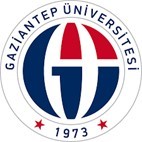
Gaziantep, Turkey
Gaziantep University
Gaziantep University was founded as a state university in 1987, but higher education on campus began in 1973 when the institute was an extension campus of the Middle East Technical University. The main campus is located in Gaziantep with its extension campuses situated in the neighboring districts such as Nizip, Oğuzeli, Araban and Islahiye. Gaziantep University has always tried to train its students as enlightened, research-minded, scientifically oriented graduates of good character. The main objectives of the University are:
- Cultural, scientific, technical, medical and vocational education and training, – Fundamental and applied research,
- Development of perspectives with respect to social issues, responsibilities and ethics,
- Technical, scientific and cultural exchanges with similar institutions at national and international levels,
- Professional adaptation to our rapidly changing society and the world in general, with particular attention to European Higher Education Area,
- Contribution to the development of Turkey.
Gaziantep University is the largest university of the region with about 45000 students, 1800 academic staff, 3200 administrative staff, 20 faculties, 5 graduate schools, 11 vocational schools. In Gaziantep University, as well as the research performed in academic departments, additional research and practices in social and cultural fields are carried out by the 28 research and development centers. As an international university, it has about 3000 foreign students from 93 different countries. Gaziantep University is an individual full member of European University Association. Also the University has “Diploma Supplement Label”. The number of students who go abroad, about 29 different countries, with Erasmus exchange programs and study grants is about 1200 while the number of academic staff mobility is 234. Gaziantep University is strongly committed to international collaboration and cooperation. University administration promotes and fully supports Lifelong Learning (Erasmus, Leonardo Da Vinci, Grundtvig, Comenius) and Youth in Action programs supported by European Commission. The university has also strong relations and cooperation with universities in the USA, Canada and Russia. The current internationalization policy of Gaziantep University focuses on the effort to increase the student and staff mobility; increasing internationalization of curricula; active participation in collective research and educational projects. In this manner, curriculum development studies were carried out in the frame of the “Bologna Process” at Gaziantep University. According to existing strategic plan, improving the international collaboration and also dissemination of e-learning programs should be in the targets of the aim which is based on improving the quality of education and teaching activities. University of Gaziantep also has been offering distance learning courses and studies.
Website: www.gantep.edu.tr